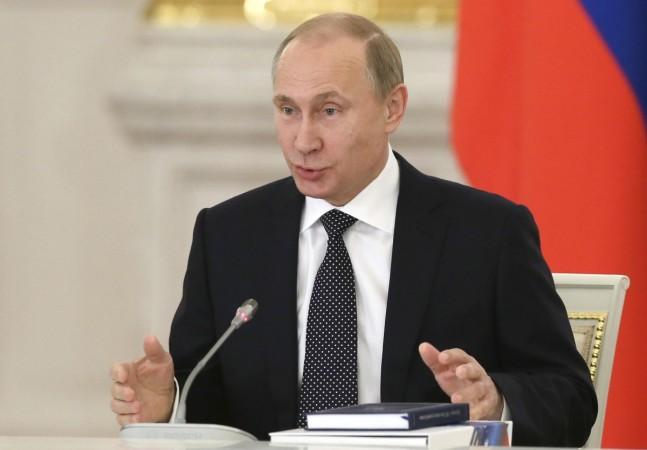
As the Russian economy goes into deep recession, analysts say Putin's leadership is at stake and that he might have to resign.
According to Byron Wien, a former senior strategist at Morgan Stanley, the declining price of oil and the US sanctions will have a huge impact on Russia's economy, which is showing signs of a fall. The ruble is down 50 percent against the dollar and the central bank is doing damage control by raising interest rates.
All that and more will eventually lead to Putin's resignation, Wien predicts, according to Bloomberg.
Wien is not the only one who thinks Putin's regime is threatened. Mark Galeotti, a professor at NYU's Center for Global Affairs also believes that by 2016, Putin's government will crumble.
Commenting on what would actually lead to Putin's resignation, Professor Galeotti said in an interview with Vox that the president's loyal groups might abandon him if the current economic and political scenario wasn't fixed.
"A few years back, they were really convinced Putinists. It was an emotional thing. They believed that this was a guy who had saved Russia. Now, I think they tend to be pragmatic Putinists. They know that their interests are being served," the professor said.
"...they've moved from "I believe in Putin implicitly," to "at the moment, Putin's in my interests"," Galeotti added.
The professor explained that the Putin government is losing its resilience because "they are burning away the political and social and economic capital."
The predictions come just a week after Putin's December year-end conference where he said he will need two years to fix the economy. He made some major points at the conference, some of which are listed below:
- New economic reforms for small business entities that make up at least 22 percent of Russia's economy
- Full amnesty for capital returning to Russia provided the property is legalized in the country.
- Increased investment in technology.
"Even if Putin can get his two years — a questionable assumption at this point — that will bring Russia right up to the next parliamentary election in 2016," William E. Pomeranz wrote for Reuters adding that if Russia is hit by a severe recession, Putin may not be able to avoid a referendum of his economic policies in 2016.















